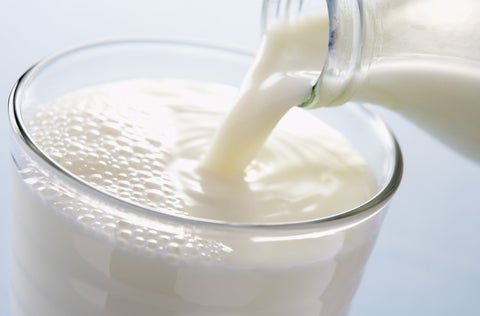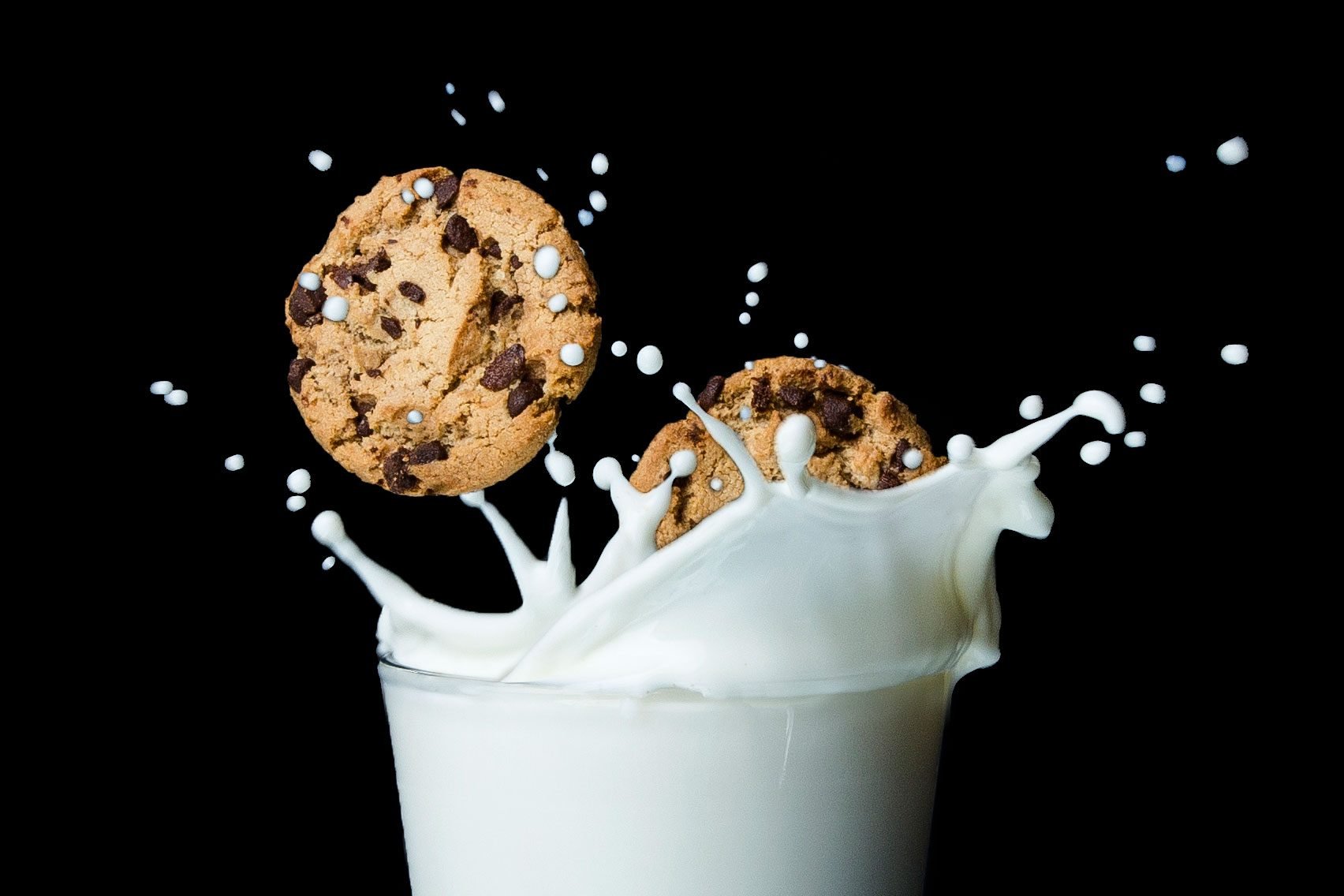Why Does Milk Taste So Good

A combination of factors contributes to milk’s taste. Fat content, lactose sweetness, and the presence of umami-tasting proteins all play a role. The way milk is produced can also impact its flavor.
For example, raw milk has a grassier taste than pasteurized milk because it contains more protein fragments and other compounds that contribute to its flavor.
There are a few reasons why milk tastes so good. First, milk is packed with nutrients that our bodies need, including calcium, protein, and vitamin D. Second, the fat content in milk makes it creamy and delicious. And lastly, the lactose in milk provides a natural sweetness that we can’t help but crave.
So next time you’re reaching for a glass of milk, remember all the things that make it taste so good!
Why Does Milk Taste So Bad
Have you ever wondered why milk tastes so bad? It’s a common question, and one that has a variety of answers. First, let’s start with the basics: milk is made up of water, fat, protein, carbohydrates, and minerals.
These components are all essential to our diet and play important roles in our bodies. However, they can also contribute to the taste of milk.
Water makes up about 87% of milk, so it’s no surprise that it has a major impact on its taste.
The other 13% is made up of fat, protein, carbohydrates, and minerals. Fat provides creaminess and body to milk while protein gives it structure and stability. Carbohydrates add sweetness while minerals like calcium give milk its characteristic flavor.
So why does milk sometimes taste bad? There are a few possible explanations. One is that the balance of these components can be off-kilter, resulting in an unpleasant flavor.
This can happen when cows are fed certain types of food or if there’s an imbalance in their diet. Another possibility is that bacteria have contaminated the milk during processing or storage and caused it to spoil. This is more likely to happen with raw milk but pasteurizedmilk can also be affected if not handled properly.
Finally, some people simply have a genetic aversion to lactose (the sugar found in milk) which can make even the best-tasting milk taste bad to them.
If you’re wondering why your glass of milk doesn’t taste as good as it used to or want to avoid this problem in the future, there are a few things you can do. First, make sure you’re buying fresh Milk from reputable sources and storing it properly (in the fridge!).
Second, check the expiration date before purchasing – even fresh Milk will go bad eventually!
Why Does Milk Taste Bad to Me
If you’ve ever wondered why milk tastes bad to you, there are a few possible explanations. It could be that you’re lactose intolerant, meaning your body can’t digest lactose, the sugar in milk. This can cause bloating, gas, and diarrhea.
It could also be that you have a sensitivity to cow’s milk protein, which can cause nausea, vomiting, and abdominal cramps. Or it could be that you simply don’t like the taste of milk! Whatever the reason, there are plenty of other delicious and nutritious options out there for you to enjoy.
What Does Milk Taste Like
Milk is a nutrient-rich, white liquid food produced by the mammary glands of mammals. It is the primary source of nutrition for infant mammals (including humans who are breastfed) before they are able to digest other types of food.
The composition of milk varies widely by species.
For example, human milk contains more lactose than cow’s milk and has a different fat content. Milk from Water buffalo, goats, ewes, and mares also differs in composition.
milk typically has a sweet taste caused by lactose .
Other molecules in milk can produce flavors that range from buttery or cheesy to metallic . These flavors are affected by the animal’s diet , handling, and processing .
Is Milk Good for You
There are a lot of conflicting opinions out there about whether milk is good for you or not. So, what’s the truth? Is milk good for you, or not?
The answer isn’t as simple as yes or no. Milk is a complex food, and there are pros and cons to drinking it. Let’s take a closer look at some of the key points.
Milk is a good source of protein and calcium. It also contains other nutrients like vitamin A, B12, and potassium. So, if you’re looking for an easy way to up your intake of these essential nutrients, drinking milk can be a helpful option.
That said, milk also contains saturated fat and cholesterol. And while these substances aren’t necessarily bad for you in small amounts, too much can increase your risk for heart disease and other health problems. So if you have concerns about your cholesterol levels or are trying to watch your saturated fat intake, you may want to limit how much milk you drink or avoid it altogether.
In the end, whether or not milk is “good for you” depends on your individual diet and health needs. If you have no dietary restrictions and are looking for an easy way to get more protein and calcium, drinking milk can be beneficial. However, if you have concerns about cholesterol or saturated fat intake, you may want to limit your consumption or choose alternative sources of these nutrients instead.
What Does Breast Milk Taste Like
There are many different types of breast milk, and each one has a unique flavor. The taste of breast milk can depend on the mother’s diet, her body composition, and even the time of day that she pumps. Some mothers say that their milk tastes sweet, while others report a more bland or neutral flavor.
So what does breast milk actually taste like? While it may vary from mother to mother (and baby to baby), many people say that it is similar to cow’s milk – albeit a bit sweeter. Some describe the taste as being similar to almond or coconut milk.
Others say it has hints of vanilla or honey.
No matter what breast milk tastes like, there’s no denying that it is packed with nutrients and antibodies that are essential for a growing baby. So whether you’re breastfeeding or simply curious about the flavor, know that there’s no right or wrong answer – it all comes down to personal preference!

Credit: www.rd.com
Why Do Some People Like Milk So Much?
There are many reasons why people like milk. Milk is a good source of calcium and protein, which are essential nutrients for the body. It also contains vitamins A, D, and B12, which are important for maintaining healthy bones and teeth.
Additionally, milk is a good source of energy and can help to regulate blood sugar levels. Some people also find that milk has a soothing effect on the digestive system.
Why Does Milk Taste So Good After Eating Chocolate?
Chocolate and milk have a long history together. The first chocolate bar was created in 1847, and by the early 1900s, chocolate milk was becoming popular in the United States. Today, many people believe that chocolate milk is the best way to enjoy both foods at once.
So why does chocolate milk taste so good after eating chocolate? There are a few theories. First, the sweetness of the milk helps to offset the bitterness of the chocolate.
Second, the fat in the milk creates a smooth texture that coats your tongue and makes the flavor last longer. Finally, scientists believe that our brains release dopamine when we eat sweets, which makes us feel happy and satisfied.
Whatever the reason, there’s no denying that chocolate milk is a delicious treat.
So next time you’re looking for a sweet snack, try pairing your favorite chocolate with some cold milk for an unbeatable combination.
Why is Whole Milk So Good?
Whole milk is a good source of many nutrients, including calcium, phosphorus, vitamin A, and vitamin D. It also contains fat and protein. Fat is an important nutrient for children, as it helps them absorb vitamins A and D. Protein is essential for growth and development. Whole milk also has a lower calorie content than skim milk or low-fat milk.
Does Milk Taste Like Anything?
Milk is a white liquid produced by the mammary glands of mammals. It is the primary source of nutrition for young mammals before they are able to digest other types of food.
The composition of milk varies widely by animal species.
It typically contains fat, protein, and lactose (milk sugar). Milk also contains vitamins and minerals.
The taste of milk depends on its fat content, which ranges from 0.5% to 6%.
Fat-free milk has a watery consistency and a slightly sweet taste. Whole milk is creamy and has a richer flavor. The fat in milk can also give it a slightly rancid taste if it is not fresh.
Milk. White Poison or Healthy Drink?
Conclusion
This blog post discusses the science behind why milk tastes so good. The author explains that milk contains a sugar called lactose, which is broken down into lactic acid and glucose in the body. Lactic acid is what gives milk its characteristic sour taste, while glucose is a sweetener.
When these two substances are combined, they create a delicious flavor that is irresistible to many people.
